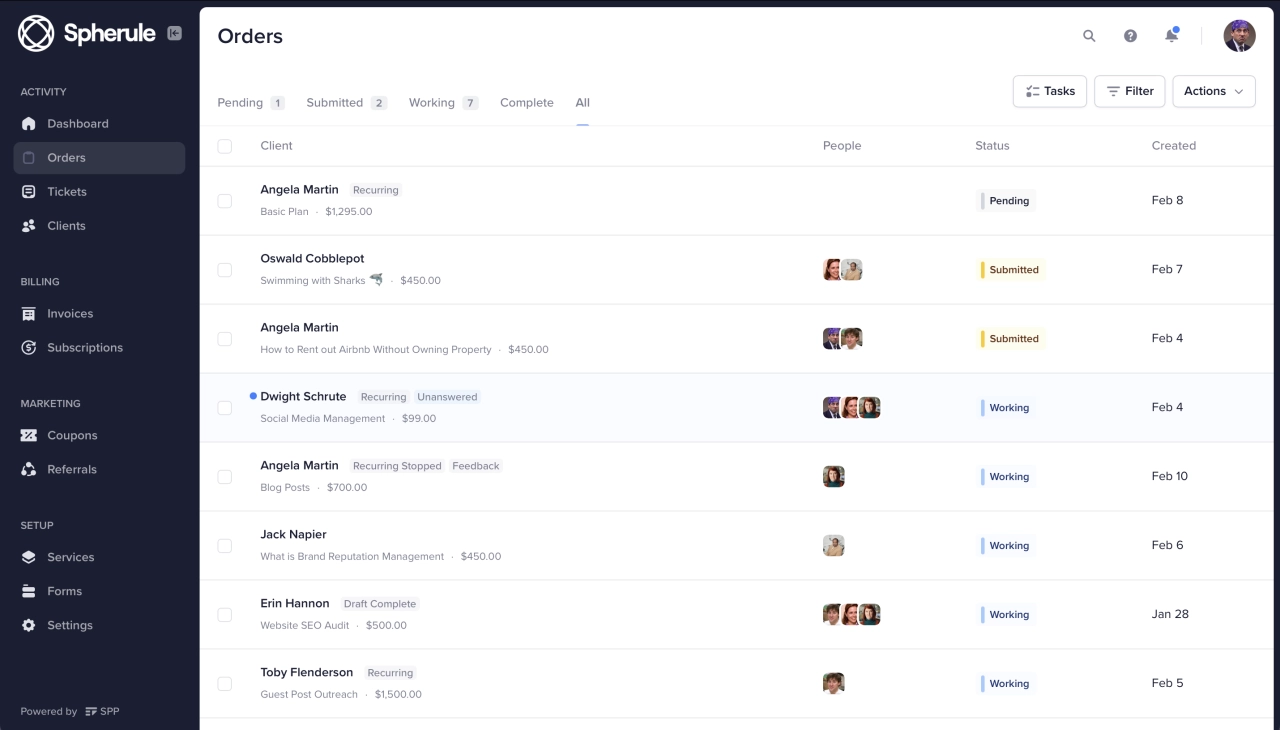Payment Gateway
A payment gateway is a service that processes credit card transactions and facilitates secure money transfers between customers and merchants. It acts as the bridge between the client’s payment and the agency’s bank account.
Example
An agency using SPP.co might connect to Stripe or PayPal as their payment gateway to securely accept client payments online.
Related Terms
Related Article
How to Accept Online Payments at Your Agency
Ready to give it a try?
You're in good company. We've helped agencies like yours sell $500M+ in services.


